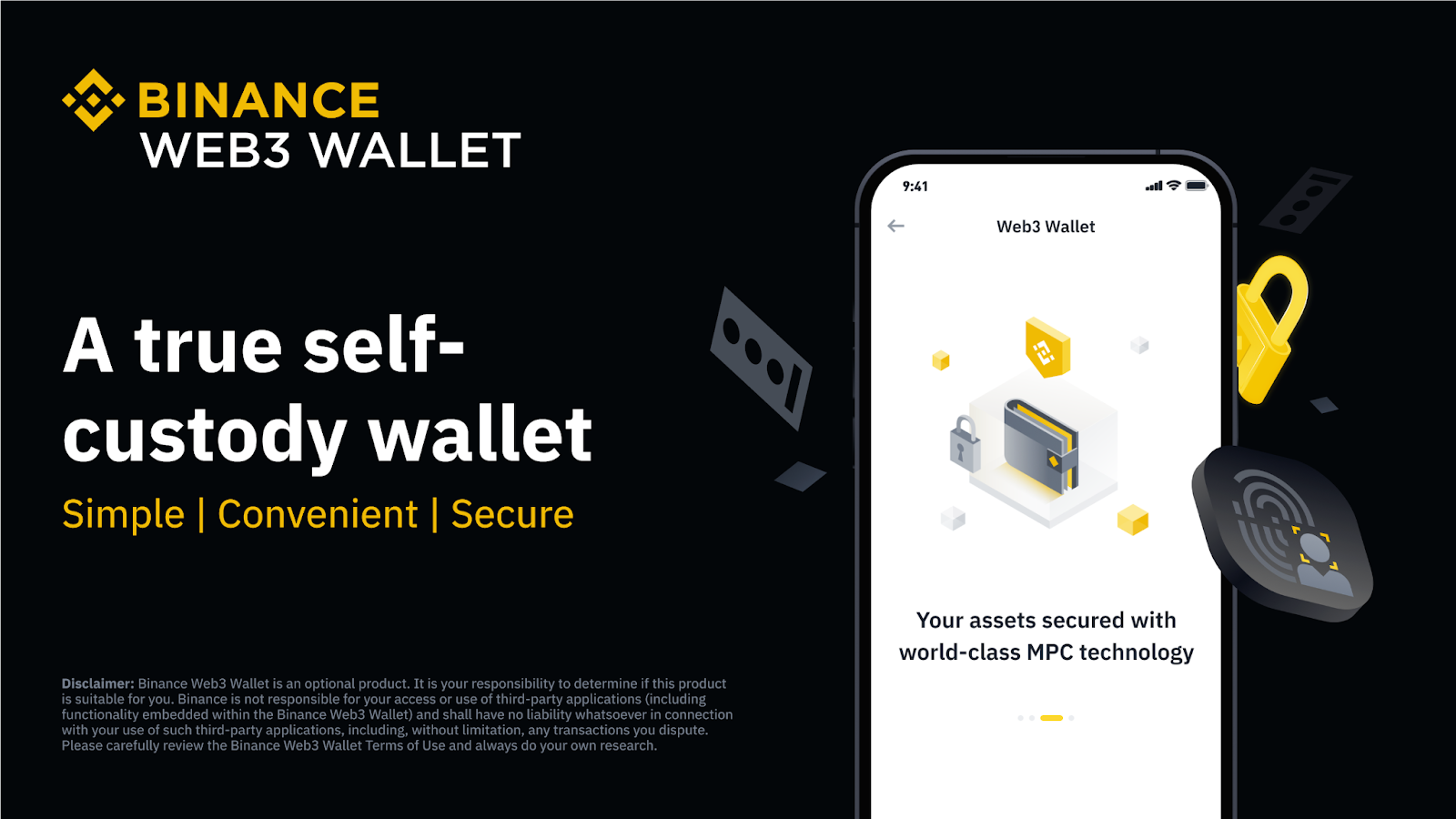Binance Enters the Self-Custody Arena with a New Web3 Wallet
Binance, the world's leading cryptocurrency exchange, has announced the launch of its innovative self-custody Web3 wallet, marking a significant milestone in the company’s expansion into decentralized finance (DeFi). This development reflects Binance's commitment to enhancing user autonomy and security in managing digital assets. The wallet,

Binance, the world's leading cryptocurrency exchange, has announced the launch of its innovative self-custody Web3 wallet, marking a significant milestone in the company’s expansion into decentralized finance (DeFi). This development reflects Binance's commitment to enhancing user autonomy and security in managing digital assets.
The wallet, which can be set up through the Binance app, is tailored to facilitate seamless interaction with the DeFi ecosystem. It not only supports staking, lending, and borrowing but also includes features like the Binance Bridge and an Airdrop Zone, aiming to provide a comprehensive suite of services for the modern crypto user. The integration of multi-party computation (MPC) technology is a game-changer, offering an advanced security protocol that divides the private key into multiple parts to mitigate risks associated with traditional seed phrases.
Binance’s self-custody solution arrives amid a heightened demand for financial sovereignty in the crypto community. With the ability to interact across 30 blockchain networks, the wallet is more than just a storage unit; it is an essential tool for navigating the burgeoning Web3 landscape. Built upon Trust Wallet’s Wallet as a Service (WaaS) technology, Binance’s offering includes robust asset management and cross-chain transfer capabilities.
The announcement, made during Binance Blockchain Week in Istanbul, positions Binance in direct competition with other self-custody wallets, including TrustWallet, which Binance acquired in 2018. Despite the internal competition, this move is strategic for Binance, as it diversifies its services and caters to a growing segment of users who prioritize self-custody solutions.
To access the wallet, users are required to undergo Know Your Customer (KYC) procedures, aligning with global regulatory standards. However, the wallet’s unique security feature, which employs MPC to eliminate the traditional seed phrase, emphasizes ease of use. Users must, nonetheless, take care to safeguard their recovery passwords, as the loss of these credentials could lead to irreversible access issues.
Binance's new wallet stands at the forefront of a shift towards a decentralized and user-empowered financial ecosystem. It not only underscores the importance of security in the digital age but also reinforces Binance’s role as a pioneer in the quest for financial freedom and self-custody in the Web3 era.




